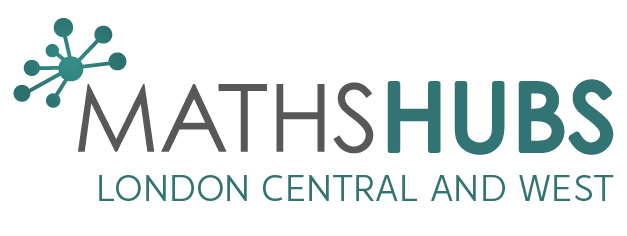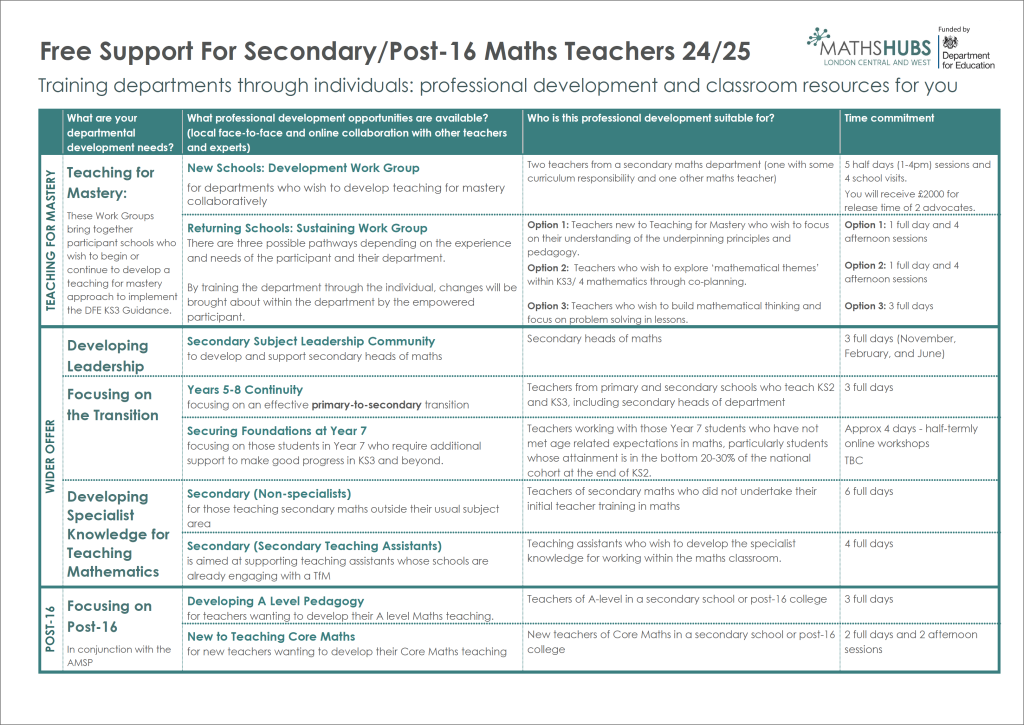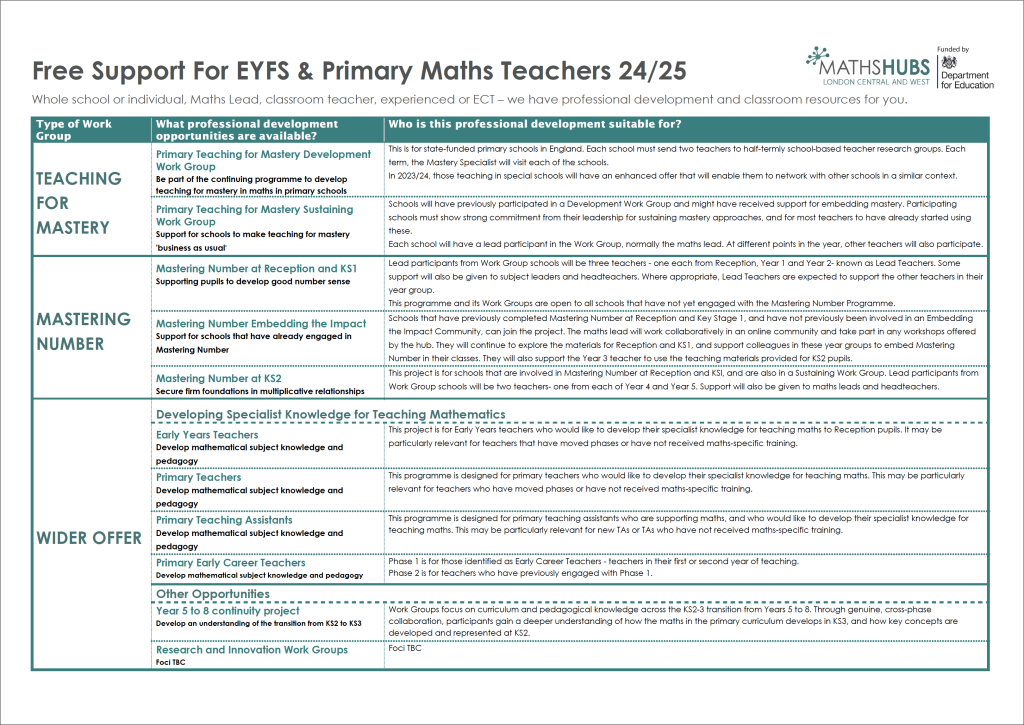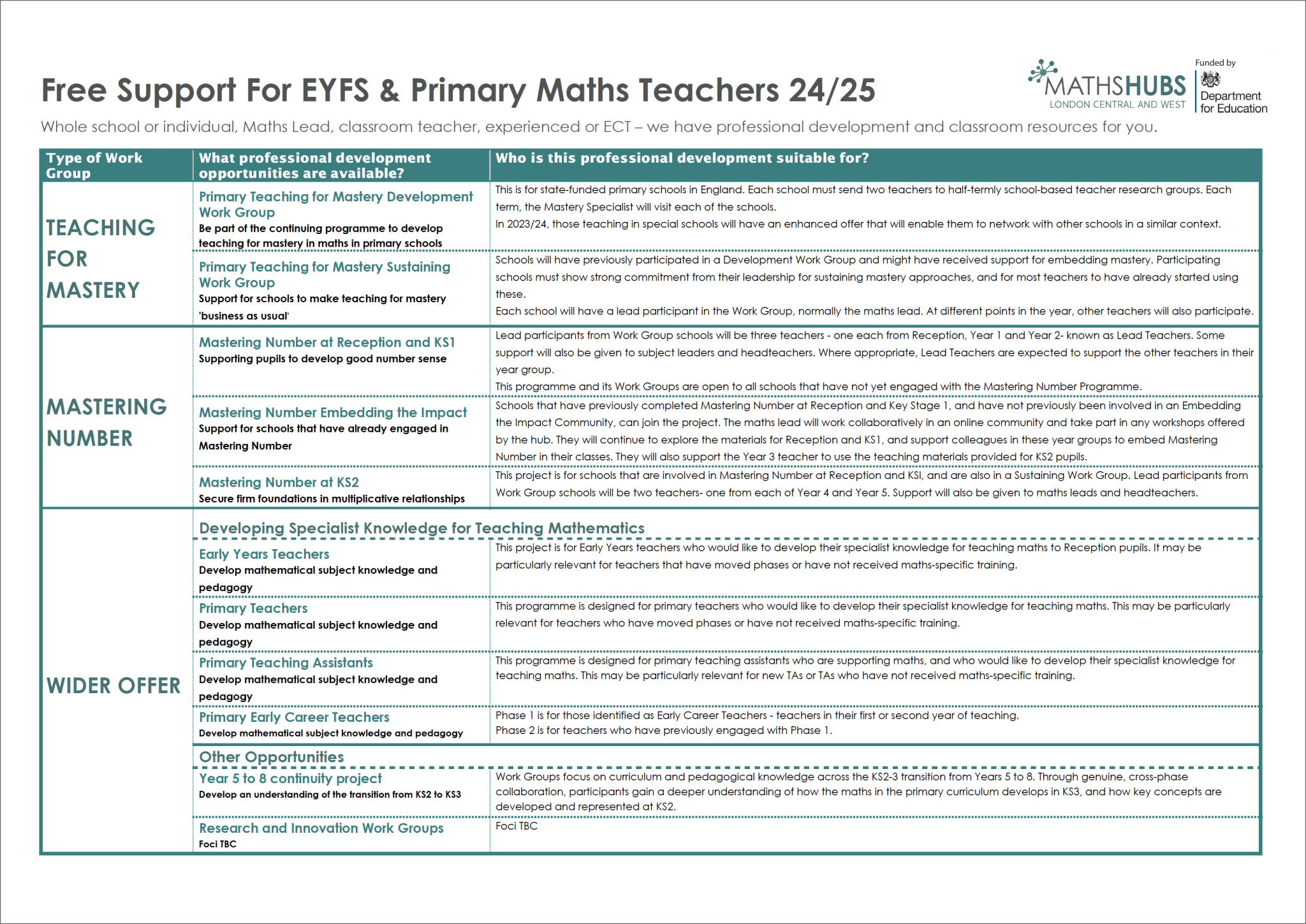Connecting Representations with Bansho (Boardwork)
with Laurie Jacques, SMaR+ PD
A prominent feature of teaching for mastery is the use of multiple representations. Carefully used annotations and the development of teacher’s board work on flip charts during teaching can enhance the potential for connections to be made. Further investigations show that in Japan this is a recognised important feature of a well-executed mathematics lesson (Stigler 1999). In Japan this is called Bansho. Carefully considered flip chart work is a feature of lesson design and its use is contributes to the development of children’s connected learning through representation & structure (one of the NCETM’s 5 Big Ideas of Mastery).
The project aims to help enable KS1 & KS2 teachers’ to use Bansho in their own teaching. Teachers will work collaboratively using lesson study cycles to design and redesign mini lessons with the goal of ensuring that connections between representations are supported through teachers’ careful annotation and use of flip charts.
What does the project involve?
The project will involve one half-day day of training, followed by six half-day lesson studies across the Autumn 2019, Spring 2020 and Summer 2020, presentation day. Between sessions there will be gap tasks involving trialling the use of the approaches explored in the lesson studies. The workgroup lead will offer support in designing the Bansho, demonstrating teaching and orchestrating the lesson study discussions. Participating teachers are expected to work collaboratively, teach a small group in their own and others’ schools, reflect critically on pupils’ learning and their own professional learning. Participants are also expected to host a learning study in their school for the workgroup. This requires allocating a space for the workgroup to gather and for the group teaching sessions to take place. A small subsidy of £100 is offered to schools who are chosen to host to cover any costs incurred.
The project’s aims involve supporting teachers to reach the following outcomes:
- Participating teachers will develop a greater understanding of how the use of board work (Bansho) can enhance teaching and pupils’ learning of mathematics.
- Participating teachers will become increasingly skilled at executing board work in their own teaching.
- Share examples of board work used in the workgroup using Twitter by the London Central and West Hub.
- Participating teachers will be able to share examples of practice and their learning within their own school settings.
Schools can choose to send up two members of staff (KS1 and/ or KS2) but all teachers are expected to attend all days
Dates:
Monday 30th September Project Preparation Day 13:00am – 15:30pm
Venue: Fox Primary School, Kensington Place, W8 7PP
Monday 14th October Lesson Study* 1 09:30 – 11:45
Gap Task
Monday 25th November Lesson Study* 2 09:30 – 11:45
Gap Task
Monday 27th January ‘20 Lesson Study* 3 09:30 – 11:45
Gap Task
Monday 2nd March ’20 Lesson Study* 4 09:30 – 11:45
Gap Task
Monday 20th April ’20 Lesson Study* 5 09:30 – 11:45
Gap Task
Monday 15th June ’20 Lesson Study* 6 09:30 – 11:45
Gap Task
Monday 29th June Presentation Day
Fox Primary School
* Lesson Studies to be hosted by participating schools: Venues confirmed on the Preparation Day
In order to apply to be a part of this project, you will need to fill out an Expression of Interest Form. The deadline to fill this out is Friday 20th September 2019
Contact michelle.foster@lcwmathshub.co.uk
*The London Central and West Maths Hub reserves the right to charge a £75 fee for non-attendance to the sessions or for cancellations to any of the sessions with less than 14 days’ notice.



